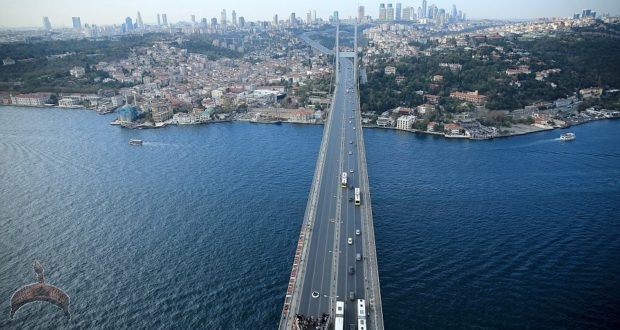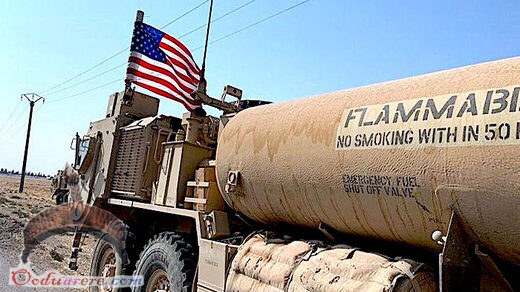by Gary Littlejohn
It is said that when Groucho Marx was asked how he went bankrupt, he replied “Slowly at first, and then much more quickly”. The Turkish Lira had started to slide slowly and then last week it went down much more quickly. The context for this was made clear by the Moon of Alabama on 10th August, on the very same day that the decline of the Lira reached the tipping point into an urgent crisis level.
http://www.moonofalabama.org/2018/08/how-turkeys-currency-crisis-came-to-pass.html#more
The fact that he could analyse it so quickly indicates that the crisis had been developing for quite a while, and so he had already digested the implications of Turkey’s political and economic trajectory. Given that Greece has recently received what is claimed to be the last tranche of its bailout funding from the European Central Bank [ECB] one has to wonder why Turkey apparently learned no lessons from Greece’s long-run debt crisis, or even from the much smaller and shorter financial crisis in Cyprus. Both showed that when the financial crunch arrives, events move very quickly. Even though in Greece the Syriza government had a plan to exit from the Euro and return to the Drachma, when it was ready to do that, it found that the funds had already disappeared from Greek banks. A rapid bank run had meant that funds had disappeared abroad. In the case of Cyprus, only quick-witted wealthy Russians managed to get their funds out quickly enough, by using a bank that also had a branch in London, which was a loophole that the authorities had not thought to close when capital controls were imposed and banks were closed temporarily.
There is no sign that Erdogan or his advisers fully understand the speed with which a financial crisis can develop, despite all the evidence of the last 10 years, or the Asian financial crisis of 1997-8, a crisis from which Russia evidently learned to avoid being so vulnerable again. So what can the Erdogan government do in such difficult circumstances? Until today (15 August 2018) all that had been seen was rhetoric and blaming others, but as the Moon of Alabama pointed out, the economic leverage now available to those hostile to Turkey was provided by Turkey’s own economic policies.
Now that debt in US dollars and Euros probably exceeds 50 per cent of the total debt owed by Turkish financial institutions, and the Lira had accelerated its fall over the 5 days to the 14th August, repaying such debts quickly is impossible. Nor would trade retaliations have a sufficiently large effect to hurt the USA. [The Turkish economy is only about 8 per cent of the size of the EU economy.]
https://www.theguardian.com/world/2018/aug/14/erdogan-turkey-boycott-us-Lira-trump-pastor-brunson
While Erdogan’s supporters helped him to withstand the recent coup attempt, they are not wealthy enough to finance such debts by selling their gold or other assets. It has already been calculated that Turkish commercial bank reserves have effectively been liquidated by the decline in the exchange value of the Lira. Total Turkish government reserves are about $131 billion.
Turkish institutions have borrowed about $150 billion, and it would now take about double the pre-crisis amount of Lira to repay this. This far too big for, say, Russia to support and Erdogan has stated that he did not seek Russian financial aid in his recent phone call with Putin.
http://tass.com/economy/1017031
Russia has simply declared that bilateral projects such as the Turk Stream gas pipeline and the atomic power plant are not in jeopardy, but then Russia is financing most of these costs and the clear implication is that no further financial aid will be forthcoming. This is hardly surprising when Russia’s reserves amount to $458 billion, only about 3.5 times more than Turkey’s reserves, and Russia too faces sanctions. So it is likely that Erdogan’s denial that he asked for aid is a face saver.
Nor is it likely that China would feel able to come to Turkey’s aid, for two main reasons. Firstly, it has just taken an 80 per cent stake in Iran’s natural gas project, based on the largest single reservoir of natural gas in the world, and it has longer-term plans to build a rail link from Central Asia to Iran. Secondly, with today’s announcement by Turkey of what is called a ‘soft capital control’, the Lira has bounced back today and the financial pressure from investors has suddenly switched to China.
According to the link above, the phrase ‘soft capital control’ refers to a newly announced requirement by the local banking regulator “that the total amount of foreign currency and Lira swap and swap-like transactions can’t exceed 25% of banks’ legal shareholder equity (which followed a similar determination at 50% just two days earlier). The logic behind the move, taken straight out of the PBOC’s [People’s Bank of China] playbook: to ‘kill offshore Lira liquidity to stop foreigners shorting the Lira’….” So foreign speculators are not going to find it easy to buy Lira in order to bet against the Turkish currency.
This is the first sign that Turkey is using what international investors would recognise as credible financial measures to deal with the crisis. Meanwhile, the Lira crisis has made global financial markets more nervous and carries the danger of a global crisis. This now-panicky mood partly explains why China has suddenly attracted negative attention.
Yet the danger of ‘contagion’ within the EU is not over, even though the weak French, Italian and Spanish banks most exposed to Turkish debts are considered to have sufficient reserves to withstand bad Turkish debts. While Turkish debts are not considered to be an existential threat to such banks, the fact is that any additional destabilisation of EU banks, such as a so-called ‘hard Brexit’ by the UK, could destabilise the EU banking system. The ECB is already finding it difficult to buy EU government bonds as a way of pursuing its policy of ‘Quantitative Easing’ (QE, effectively printing money electronically) without causing high levels of inflation, and so QE may be coming to an end as a policy fairly soon. Since this is happening at a time when the US Federal Reserve has made it clear that it wishes to raise interest rates, and the Bank of England has just done so, the nervousness on global markets that the last 10 years of cheap credit might be coming to an end is understandable. So the Turkish Lira crisis may be seen as a possible precursor of a much wider financial crisis, whose likelihood is increased by Trump’s trade war measures.
https://www.zerohedge.com/news/2018-08-14/current-state-global-trade-war-one-infographic
The actual point of origin of any such global crisis can only be guessed at, and while many might expect it to start in the USA as it did in 2007-8, it could well happen within the EU, where many banks are comparatively over-stretched dealing with what are politely called ‘non-performing loans’. These problems are exacerbated within the EU by the large flows of funds from southern EU countries to northern ones.
Geopolitical Implications
The Moon of Alabama pointed to the sort of political price that various countries might extract from Turkey now that it is suddenly in a much weaker position. Readers of the South Front website could readily outline the probable implications for the Syrian conflict. Neo-Ottoman dreams of a buffer zone between Turkey and any Kurdish groups seem far from being viable.
With regard to the recent BRICS conference in South Africa, where Turkey suggested that it might join BRICS, that will inevitably be shelved at best. I am not aware of Turkey having engaged in any of the currency swap arrangements signed in recent years by Russia and China with various partners, and so Turkey’s references to reorienting by turning to new allies and markets carries little credibility in the short run. Yet I expect Erdogan to resist calling in the IMF since that will be seen in many quarters as a public surrender to the USA. That may scare off Western tourists (and the share price of the large German travel firm Tui has declined in recent days) but Russian tourists might still take their holidays in Turkey. The alternative to the IMF is probably stronger capital controls, rising goods shortages as international trading becomes more difficult, and fairly high inflation. In the longer term of such a scenario, food rationing cannot be ruled out.
 Ọmọ Oòduà Naija Gist | News From Nigeria | Entertainment gist Nigeria|Networking|News.. Visit for Nigeria breaking news , Nigerian Movies , Naija music , Jobs In Nigeria , Naija News , Nollywood, Gist and more
Ọmọ Oòduà Naija Gist | News From Nigeria | Entertainment gist Nigeria|Networking|News.. Visit for Nigeria breaking news , Nigerian Movies , Naija music , Jobs In Nigeria , Naija News , Nollywood, Gist and more









